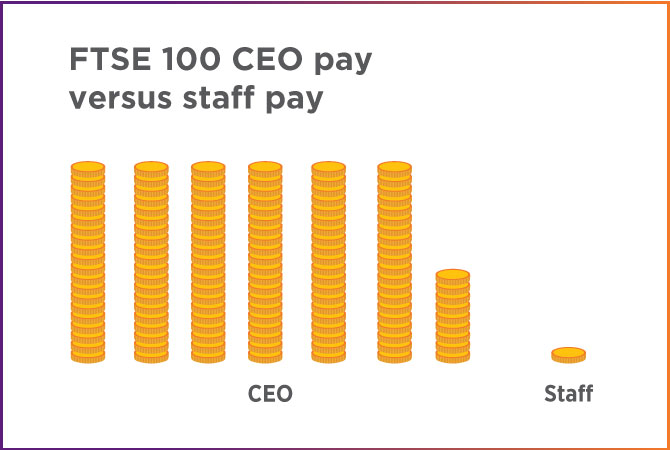
Executive pay 2017: Review of FTSE 100 executive pay packages
This report looks at how CEO pay in the UK’s largest firms has changed between the financial years 2015 and 2016
This report looks at how CEO pay in the UK’s largest firms has changed between the financial years 2015 and 2016
This report from the CIPD and the High Pay Centre examines FTSE 100 CEO pay packages, which show that rewards at the top have dropped by almost a fifth, but still remain extraordinarily high.
While these findings are based on UK data, the broader trends and implications should be of interest wherever you are based.

The report looks at how CEO pay in the UK’s largest firms has changed between the financial year to 2015 and the financial year to 2016. It finds that over this period, FTSE 100 CEO remuneration has fallen by 17%, from £5.4 million in 2015 to £4.5 million in 2016.
However, while there has been a significant drop in CEO pay, it would still take the average UK full-time worker on a salary of £28,000 (median full-time earnings) 160 years to earn what an average FTSE 100 CEO is paid in just one year. Although the average pay packages of the 25 highest paid CEOs have dropped by 24% to £9.4m in 2016, rewards for the 32 lowest paid chief executives in the FTSE 100 have increased as firms ‘chase the median’.
The CIPD and the High Pay Centre look forward to seeing the UK Government’s responsible business reforms when they come out later this year.

We would encourage companies to disclose:


Insights, benchmarking data and recommendations from the CIPD's latest survey on employee benefits


Explore our collection of resources around the gender pay gap in UK employment law

Insights, benchmarking data and recommendations from the CIPD's latest survey on employee benefits

A manifesto for fair, skilled and innovative work, setting out CIPD’s recommendations for policy-makers to strengthen the Scottish labour market

A manifesto for fair, skilled and innovative work, setting out CIPD’s recommendations for policy-makers to strengthen the Welsh labour market

Based on an assessment of FTSE 100 annual reports and focus groups with investors and HR leaders, this report gives benchmarking data, insights and practical recommendations for improving workforce reporting practices